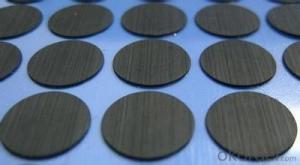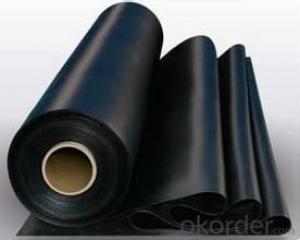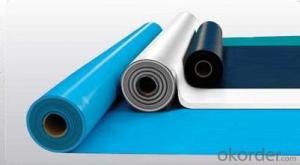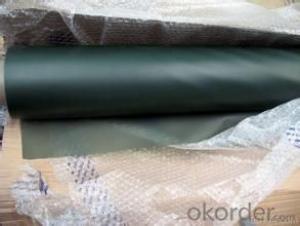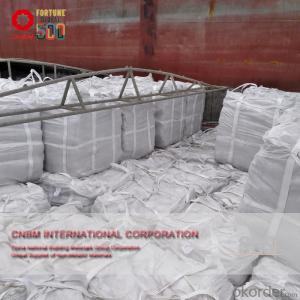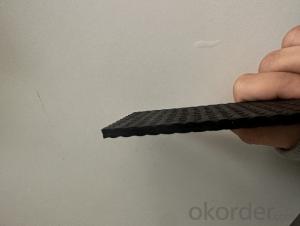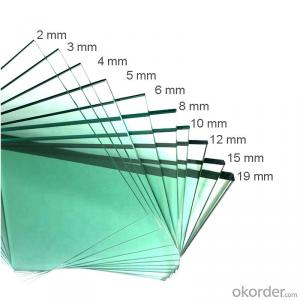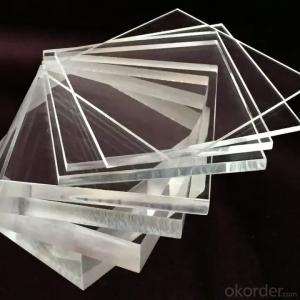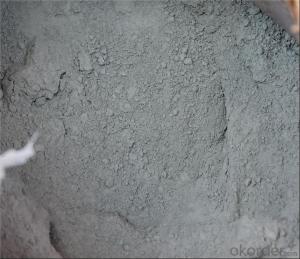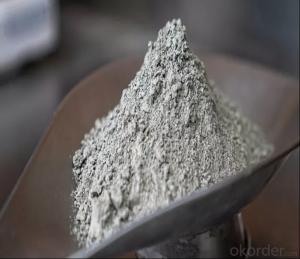EPDM Modified Waterproof Membrance for Roof and Pool
- Loading Port:
- Tianjin
- Payment Terms:
- TT or LC
- Min Order Qty:
- 5000 m²
- Supply Capability:
- 15000000 m²/month
OKorder Service Pledge
OKorder Financial Service
You Might Also Like
Quick Details
Type: | Waterproof Membrane | Place of Origin: | Shandong, China (Mainland) | Brand Name: | hongyuan |
Model Number: | Excaid-D | thickness:1.2mm,1.5mm,2.0mm: | Raw mateiral:EPDM rubber | width:1200mm: | Standard:GB18173.1--2006 |
length:20m: | Tear strength:>=25KN/m | break tensile strength >=7.5MPa: | waterproof:0.3MPa,30min | break elongation:>=450%: | usage:building waterproof |
Packaging & Delivery
Packaging Details: | PE membrane and pallet |
Delivery Detail: | within 20 days after receiving downpayment |
Specifications
1.ISO9001,ISO14001
2.Top 3 of Chinese waterproof materials manufacturer
3.Customize product property
4.System accessories
Technical Specification:
Type | Waterproof Membrane | |||
Material | EPDM RUBBER | |||
Thickness | 1.2mm; 1.5mm;2.0mm | |||
Weight(kg/m2) | 1.2mm | 1.5mm | 2.0mm | |
1.54-1.58 | 1.79-1.83 | 2.25-2.29 | ||
Length | 20m/Roll | |||
Width | 1.2m | |||
Usage | basements, ponds, Lake, steel structure roofing, underground, tunnels etc. | |||
Packing | 24 sqm/ROLL | |||
Loading in Container | ROLLS | |||
Colors | customized | |||
Enclosure | ||||
Technical Data:
Tensile Strength N/CM | Normal temperature: ≥60 ; 60°C: ≥30 |
Breaking Elongation % | Normal temperature:≥400 ; -20°C: ≥10 |
Tear Resistance N | ≥20 |
Impermeability, 30 min no leakage | 0.3Mpa |
Low Temperature Bending °C | ≥ -20 |
Heating Shrinking mm | Extension: ≥2 Shrink:≥4 |
Heat Resistance (80°C×168h) | Tensile Strength % : ≥80 ; Keeping rate of adhesive breaking:≥70 |
Alkali resistance (10% ca (oh)2 solution,normal temperature ×168h)) | Tensile Strength % : ≥80 ; Keeping rate of adhesive breaking:≥80 |
Synthetic aging | Tensile Strength % : ≥80 ; Keeping rate of adhesive breaking:≥80
|
FAQ
1. Could you offer free sample ?
Yes , free sample is available .
2.What's the MOQ ?
The MOQ is 5000 pcs .
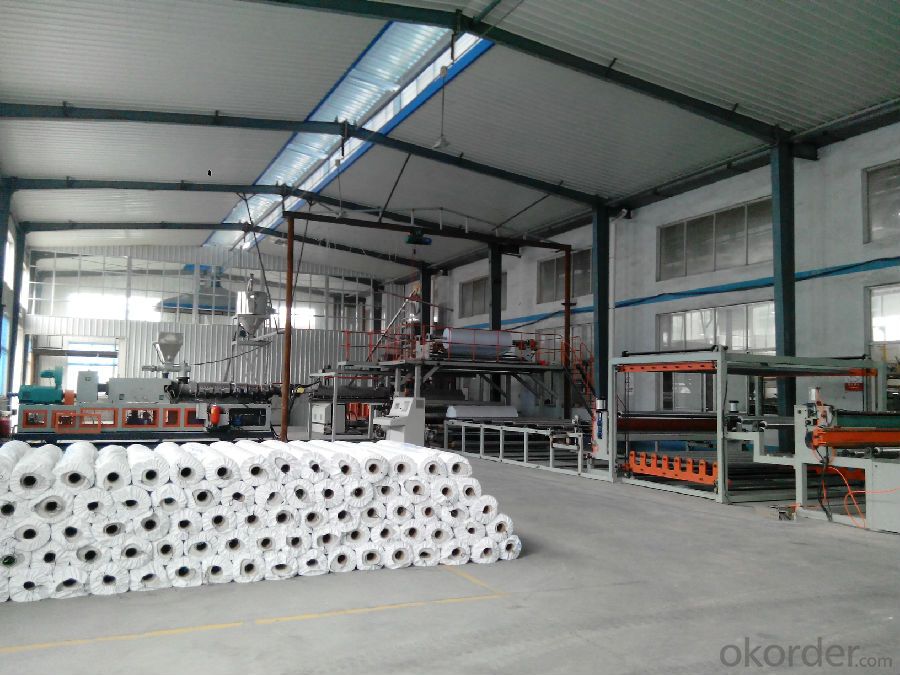
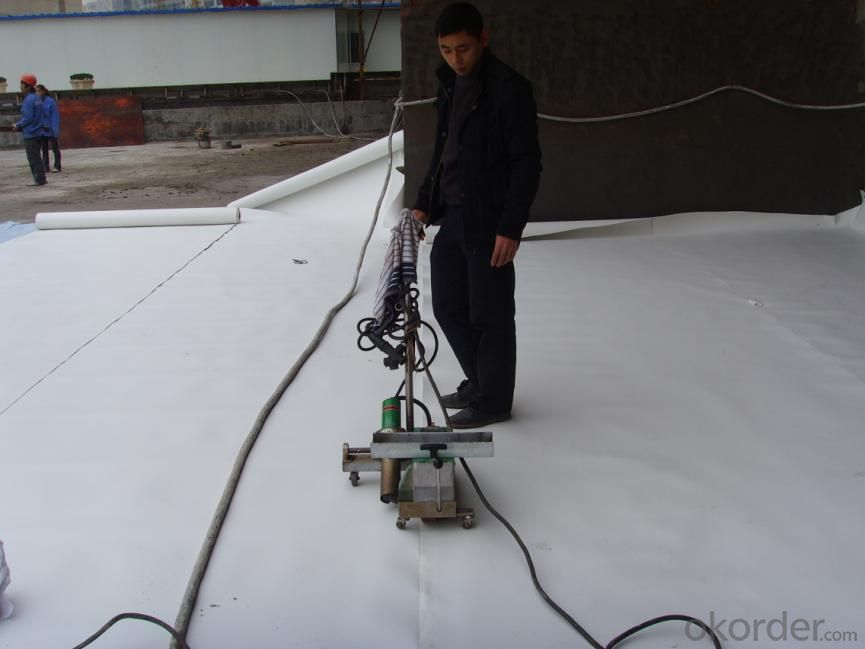
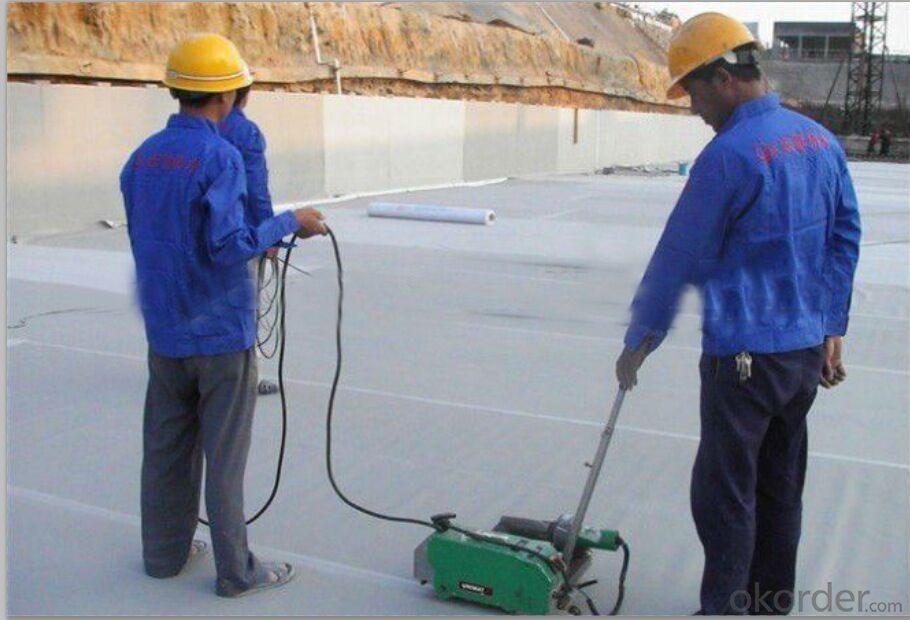
- Q:Are waterproofing membranes resistant to battery acid?
- Yes, waterproofing membranes are generally resistant to battery acid.
- Q:Can a waterproofing membrane be installed by a homeowner or is professional installation required?
- Professional installation is typically recommended for waterproofing membrane installation. This is because it involves complex techniques and specialized equipment that homeowners may not have. Additionally, professionals are trained to assess and address specific waterproofing needs, ensuring a more reliable and effective installation.
- Q:Is a waterproofing membrane resistant to solvents or chemical spills?
- Generally, waterproofing membranes tend to resist solvents and chemical spills. They are engineered to shield against water and other liquids, including solvents and chemicals. These membranes often consist of materials like PVC, TPO, or EPDM, which exhibit impressive resistance to different solvents and chemicals. Nevertheless, the degree of resistance can differ based on the membrane's type and composition. It is advisable to review the manufacturer's specifications and seek guidance from experts to confirm the membrane's compatibility with particular solvents or chemicals prior to installation.
- Q:Can a waterproofing membrane be used on foam block surfaces?
- Foam block surfaces can benefit from the use of a waterproofing membrane. Foam blocks, like expanded polystyrene (EPS) or extruded polystyrene (XPS), are commonly utilized for insulation in buildings. However, they are not naturally waterproof and can absorb moisture if exposed. To safeguard against water infiltration and potential harm, the application of a waterproofing membrane is recommended. This membrane acts as a protective barrier, preventing water from penetrating the foam and safeguarding it against issues caused by moisture, such as mold, mildew, or degradation. Selecting a waterproofing membrane that is compatible with foam block surfaces is crucial, and it is essential to adhere to the manufacturer's instructions for proper application. It is also advisable to seek guidance from a professional or building engineer to ensure the correct waterproofing solution is chosen for the specific foam block application.
- Q:Can a waterproofing membrane be used for podium decks or plaza areas?
- Podium decks or plaza areas can benefit from the application of a waterproofing membrane. It is highly recommended to utilize this protective layer in order to safeguard the underlying structure from water-related harm. Given their exposure to the elements, podium decks and plaza areas are susceptible to water infiltration. By implementing a waterproofing membrane, water seepage into the lower layers can be effectively prevented, thus ensuring the long-lasting durability and structural integrity of the deck or plaza. Furthermore, this waterproofing membrane is also capable of shielding spaces beneath the deck or plaza, such as basements or parking garages, from potential water damage. Therefore, it is crucial to select a top-notch waterproofing membrane specifically designed for outdoor purposes, and to carefully adhere to the manufacturer's instructions regarding proper installation and maintenance.
- Q:Can waterproofing membranes be used for planter boxes?
- Planter boxes can indeed benefit from the use of waterproofing membranes. These membranes are specifically designed to keep water from entering surfaces and can be applied to a variety of materials like wood, concrete, and metal. When a waterproofing membrane is applied to the inside of a planter box, it acts as a shield, safeguarding the material against water damage and extending the planter box's lifespan. This is especially advantageous for wooden planter boxes because it prevents the wood from decaying or deteriorating over time. Moreover, the waterproofing membrane also aids in retaining moisture within the planter box, preventing water leakage and ensuring that plants receive an adequate water supply for healthy growth. Ultimately, the use of waterproofing membranes for planter boxes enhances their durability and performance, making them a popular choice for both indoor and outdoor gardening.
- Q:Can a waterproofing membrane be applied in cold weather or during winter months?
- Yes, a waterproofing membrane can be applied in cold weather or during winter months. However, there are specific considerations and precautions that need to be taken into account. It is important to choose a waterproofing membrane that is specifically designed for cold weather applications. These membranes are formulated to withstand low temperatures and provide effective waterproofing even in freezing conditions. Before applying the membrane, the surface should be thoroughly cleaned and free from any debris, ice, or snow. It is also crucial to ensure that the surface is dry, as moisture can affect the adhesion and performance of the membrane. In cold weather, it may take longer for the surface to dry, so extra time should be allowed for this process. Additionally, the ambient temperature during the application should be within the recommended range specified by the manufacturer. Cold temperatures can affect the curing time of the membrane and may require longer curing periods. It is important to follow the manufacturer's instructions and guidelines for application and curing to ensure proper performance. Moreover, it is advisable to consult with a professional waterproofing contractor who has experience working in cold weather conditions. They can provide expert guidance and ensure that the membrane is applied correctly to achieve the desired waterproofing results. Overall, while it is possible to apply a waterproofing membrane in cold weather or during winter months, it is crucial to choose the right product, prepare the surface properly, and follow the manufacturer's instructions and guidelines to ensure a successful and effective application.
- Q:Can a waterproofing membrane be used in foundations?
- Yes, a waterproofing membrane can be used in foundations. In fact, it is often recommended to install a waterproofing membrane in foundations to prevent water infiltration and potential damage to the structure. The membrane is typically applied to the exterior walls of the foundation and acts as a barrier against water penetration. It helps to keep the foundation dry and protects it from hydrostatic pressure, which can cause cracks and leaks. Additionally, a waterproofing membrane can also prevent moisture buildup, mold growth, and other issues related to water damage. Overall, using a waterproofing membrane in foundations is an effective and reliable method to ensure the long-term durability and stability of a building.
- Q:Can a waterproofing membrane be used on brick surfaces?
- Indeed, brick surfaces can benefit from the application of a waterproofing membrane. These membranes have been specifically designed to create a barrier that effectively stops water from infiltrating. Notably, they have the versatility to be applied on various surfaces, including brick. By applying a waterproofing membrane to a brick surface, the risk of water damage is significantly reduced. This means that issues such as moisture seepage, which can lead to brick deterioration or the growth of mold, can be prevented. To ensure optimal results, it is crucial to select a waterproofing membrane that is compatible with brick and to closely adhere to the manufacturer's instructions during application. Seeking professional guidance is also advisable in order to choose and apply the most suitable membrane based on the specific requirements and conditions of the brick surface.
- Q:Is a waterproofing membrane resistant to punctures?
- Yes, a waterproofing membrane is generally designed to be resistant to punctures. It is engineered with durable materials and reinforced to provide protection against puncturing forces, ensuring its longevity and effectiveness in preventing water penetration.
1. Manufacturer Overview |
|
|---|---|
| Location | |
| Year Established | |
| Annual Output Value | |
| Main Markets | |
| Company Certifications | |
2. Manufacturer Certificates |
|
|---|---|
| a) Certification Name | |
| Range | |
| Reference | |
| Validity Period | |
3. Manufacturer Capability |
|
|---|---|
| a)Trade Capacity | |
| Nearest Port | |
| Export Percentage | |
| No.of Employees in Trade Department | |
| Language Spoken: | |
| b)Factory Information | |
| Factory Size: | |
| No. of Production Lines | |
| Contract Manufacturing | |
| Product Price Range | |
Send your message to us
EPDM Modified Waterproof Membrance for Roof and Pool
- Loading Port:
- Tianjin
- Payment Terms:
- TT or LC
- Min Order Qty:
- 5000 m²
- Supply Capability:
- 15000000 m²/month
OKorder Service Pledge
OKorder Financial Service
Similar products
New products
Hot products
Hot Searches
Related keywords
